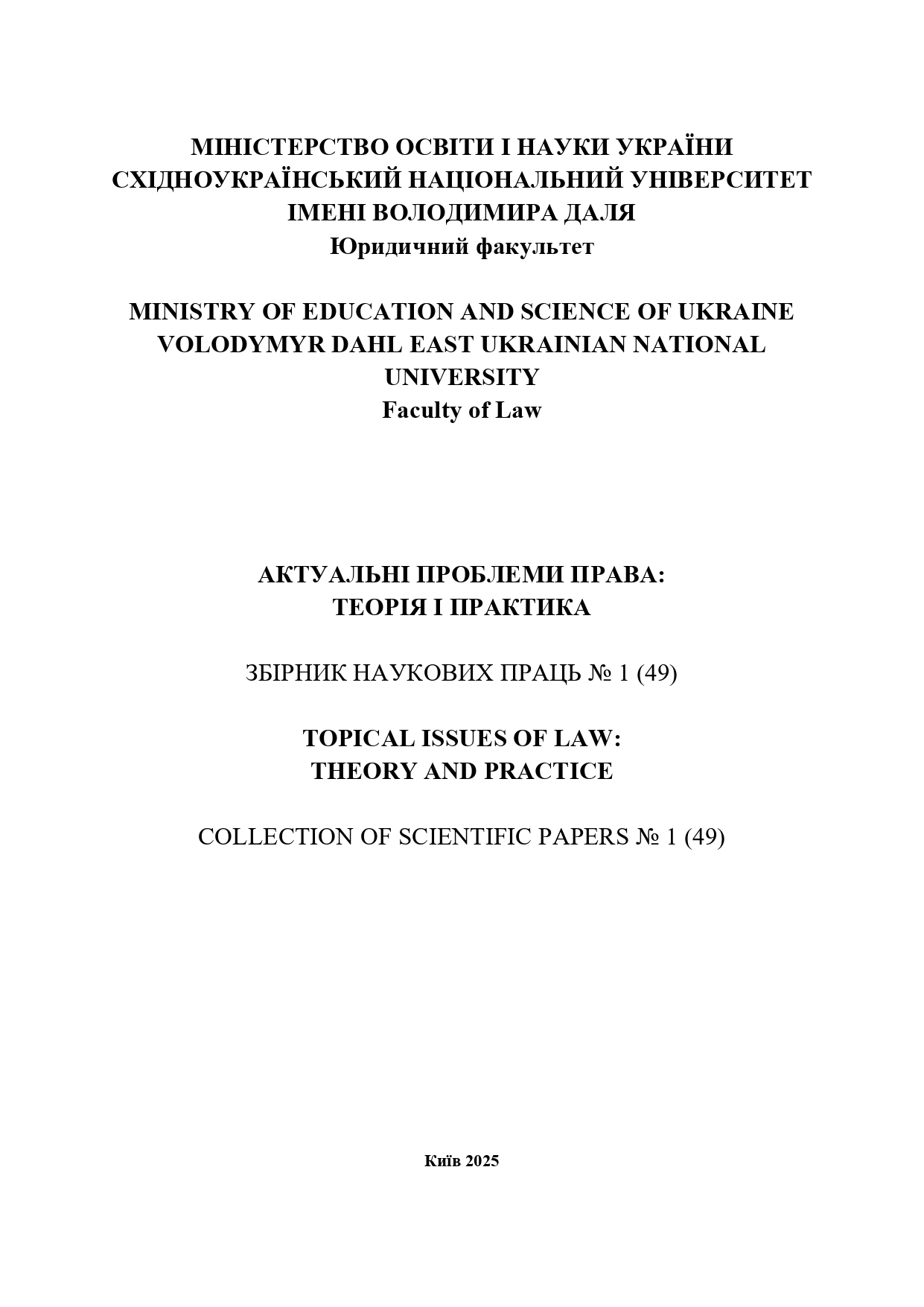PROTECTION OF LABOUR RIGHTS UNDER THE LAWS OF SOME EU COUNTRIES AND UKRAINE: A COMPARATIVE ASPECT
DOI:
https://doi.org/10.33216/2218-5461/2025-49-1-63-75Abstract
The relevance of the
issue of protection of labor rights of employees in
Ukraine is due to the adaptation of Ukrainian
legislation to the international and regional standards
of the European Union and, undoubtedly, to the need
to form a high-quality labor market. The author
substantiates the expediency of studying and
analyzing the experience of certain foreign countries,
EU Member States, with a view to improving the labor
legislation of Ukraine. The purpose of this article is to
make a comparative analysis of the experience of
Germany and the Republic of Poland in the legal
regulation of labor rights protection and to determine
whether they can be potentially adapted and
implemented into Ukrainian labor legislation. The
research methodology included the use of various
scientific methods to achieve this goal, in particular:
theoretical analysis of literature, comparison, formal
legal method and documentary analysis. In the course
of studying the topic, it was found that while Germany
and the Republic of Poland implement Directive
2003/88/EC through detailed statutes and collective
bargaining, Ukraine's system, based on ILO
conventions, establishes a clear 40-hour working
week and provides protection against overtime
without EU approval. At the same time, the author
analyzed some scientific studies on comparative legal
analysis of labor legislation in terms of protection of
labor rights of employees of the EU Member States
and Ukraine. The article examines the synergy of
Germany's constitutional freedom of labor and its
strong dismissal guarantees in contrast to the multilevel
leave of the Republic of Poland depending on the
length of service and Ukraine's focus on broad
regulation of the grounds for dismissal of an
employee, the variety of leave, etc. It is found that each
system of labor relations regulation in each of the
countries under study in terms of protection of
employees' rights in this area reflects its own legal
tradition and has a single common obligation to
decent work. The author proves that when applying a
comparative legal approach to improving labor
legislation of Ukraine in terms of protection of
employees' rights, one should proceed from the fact
that implementation of international standards, in
particular PACE Resolution No. 1763, into national
legislation and introduction of best foreign practices
(based on the example of Germany) regarding the
mechanism of its practical implementation in the
regulation of labor relations, in particular, regarding
the exercise by an employee of the right to
conscientious objection to military service, will ensure
more professional protection of the latter. The author substantiates the expediency of conducting further scientific research on improving national laborm legislation in the context of changing the conceptual approach to the essential understanding of labor inspection from a conditionally ‘punitive and prescriptive’ one to an assessment of the actual state of compliance with the provisions of current labor legislation.
Keywords: labor law, labor relations, labor legislation, employment contract, protection of labor rights, employee, European Union, integration, adaptation of legislation.

